Need to tighten and screen medical training
Professor Tran Diep Tuan, Party Secretary and Chairman of the Council of the University of Medicine and Pharmacy in Ho Chi Minh City, said he completely agrees with the viewpoint expressed by Permanent Deputy Prime Minister Nguyen Hoa Binh on the policy of not allowing non-specialized universities to train in specific fields, including medicine.
According to him, this is consistent with the current situation of medical training in Vietnam, where the number of schools opening majors is too large but many facilities do not ensure quality, leading to public skepticism about the training program as well as the professional capacity of graduates. This situation stems from the licensing of majors that is not strict enough.
According to Professor Tran Diep Tuan, the opening of medical training programs must be tightened at the highest level. In many countries, the management agency will inspect the program before granting a license, while in Vietnam, the program is allowed to be opened and only inspected after completing a training course. This makes it difficult to ensure quality from the beginning. In addition, the inspection team must be people with in-depth knowledge of medical training, instead of letting groups without medical expertise participate in the evaluation.

Regarding the handling of multidisciplinary schools that are training doctors, Professor Tran Diep Tuan said that it is necessary to "both tighten and screen". Training schools can continue to operate, but the Ministry of Education and Training must strictly control enrollment quotas to avoid exceeding actual training capacity. At the same time, it is necessary to use accreditation as a powerful tool: Schools that meet the standards must maintain, schools that do not meet the standards must stop enrolling or close the program. The set of accreditation standards for the medical industry must be specific and strict. This is also a common practice in the world and is suitable for the requirements of training doctors.
In addition, the opening of major codes also needs to be tightened. In the short term, the Ministry of Education and Training should not allow multidisciplinary schools to open more medical majors. In the long term, the Ministry needs to issue a set of clear and transparent criteria for opening majors, especially for medical doctors. At the same time, it is necessary to clarify the functions and roles of the appraisal council to ensure that all decisions are based on professional standards and the review process is truly responsible and objective.
Law training not based on the name of specialized school?
A Doctor of Law believes that it is not okay to only assign the training of Bachelor of Law to a school considered to be "specialized in law".
Firstly, according to him, currently, Law schools have been and are becoming multidisciplinary. That shows that legal knowledge is inherently multidisciplinary and multi-field. To study and practice Law, students are forced to accumulate knowledge of economics , society, and even natural and social sciences. Therefore, to think that Law training must be "specialized" is contrary to the nature of the industry.
"In fact, only multidisciplinary universities have the full conditions to train high-quality law graduates. In many countries, famous law schools are also located in multidisciplinary universities, not single-disciplinary schools," he said.
Second, the view that only single-disciplinary schools are allowed to train bachelors of law and “cut” multi-disciplinary schools is contrary to the trend of competition in higher education - a factor considered as the foundation for improving quality. In fact, many multi-disciplinary schools that train law have a quality that is considered higher than that of single-disciplinary schools, as shown by the evaluation of employers.
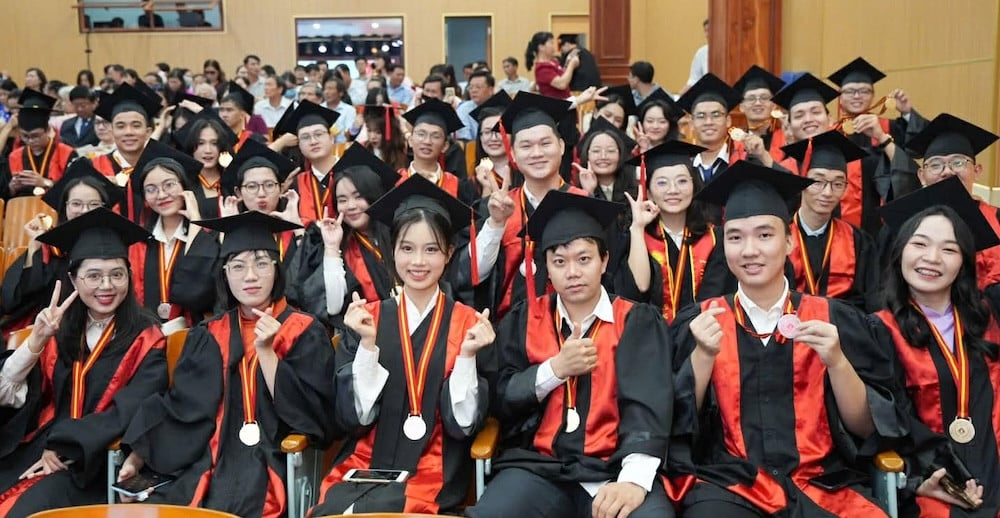
"For example, the University of Economics and Law (Ho Chi Minh City National University), or the Law Department of the Ho Chi Minh City University of Economics are both considered equal to or superior to the Ho Chi Minh City University of Law. Recently, the Supreme People's Court (recruiting civil servants) and the Supreme People's Procuracy (recruiting civil servants) have both acknowledged the quality of many multidisciplinary schools that train law such as Saigon University, Ton Duc Thang University, University of Economics and Law... Thus, if multidisciplinary schools are eliminated from training bachelors of Law, it will mean eliminating the competitive environment and creating a monopoly in law training," he analyzed.
Third, the view that “only specialized law schools can train law” is not consistent with the current policy of standardizing higher education. Standardization is not based on the criteria of “specialized or not specialized”, but on a system of quality indicators such as program standards, staff standards, international cooperation standards, and scientific and technological research standards. In international accreditation, there is no criterion asking whether a school “specializes in law” or not, but the important thing is that it meets training standards. Currently, many multidisciplinary schools training law such as Ton Duc Thang University, University of Economics and Law, Ho Chi Minh City University of Economics have all achieved FIBAA accreditation - the leading prestigious accreditation organization in Europe.
Therefore, if only law bachelor training is assigned to law schools, it means returning to an approach based on titles instead of quality standards, while the Ministry of Education and Training has issued a set of training standards for the law industry.
Meanwhile, the principal of a university in Ho Chi Minh City said that he completely agrees with the view that only specialized and specialized training schools are qualified to train doctors.
Regarding the Law sector, according to him, this is a popular field, providing basic knowledge of law to everyone, while there are still groups of people who need specialized training. However, in the past 7-8 years, some autonomous schools have opened Law majors without permission from the Ministry, and the quality of training has not really been guaranteed. Therefore, it is necessary to tighten the opening of industries such as bringing them to the Ministry for licensing, inspection, checking conditions, and closing schools that do not meet requirements.
According to this principal, the current demand for specialized law such as economics, criminology, and international law is very large. If only “specialized law” schools provide training, it will not be enough to meet social needs.
“In fact, Law is a specialized field but requires interdisciplinary knowledge. Therefore, universities should still train in many fields, including Law. Universities are inherently multidisciplinary, interdisciplinary and multi-field environments. It is normal for a school to train Law along with economics and technology, with specialized faculties for management. Therefore, Law training does not necessarily have to be a single field like Medicine. Furthermore, graduating from Law does not mean that one will become a lawyer. Currently, businesses need a very large legal force. Many multidisciplinary schools with strengths in finance, economics and banking can still effectively train Law, while specialized law schools are not sure to meet the requirements of interdisciplinary and specialized fields,” the principal analyzed.
For the Law sector, he proposed management by licensing training, internal and external accreditation, periodic and surprise inspections, and closure if not up to standard. This approach would improve the quality of human resources, facilities, and practices, and schools that do not meet standards would voluntarily close.
“Not everyone can practice medicine and not everyone can teach, but everyone can work in the legal department,” said the principal.
Source: https://vietnamnet.vn/viec-mo-nganh-dao-tao-bac-si-phai-duoc-siet-chat-o-muc-cao-nhat-2466860.html


![[Photo] Prime Minister Pham Minh Chinh chairs the 15th meeting of the Central Emulation and Reward Council](/_next/image?url=https%3A%2F%2Fvphoto.vietnam.vn%2Fthumb%2F1200x675%2Fvietnam%2Fresource%2FIMAGE%2F2025%2F11%2F27%2F1764245150205_dsc-1922-jpg.webp&w=3840&q=75)



![[Photo] President Luong Cuong attends the 50th Anniversary of Laos National Day](/_next/image?url=https%3A%2F%2Fvphoto.vietnam.vn%2Fthumb%2F1200x675%2Fvietnam%2Fresource%2FIMAGE%2F2025%2F11%2F27%2F1764225638930_ndo_br_1-jpg.webp&w=3840&q=75)



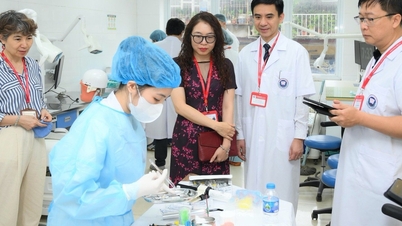
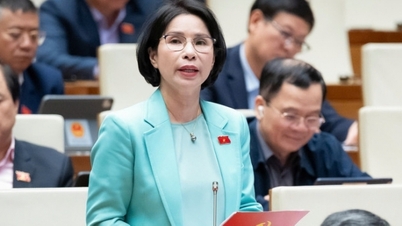

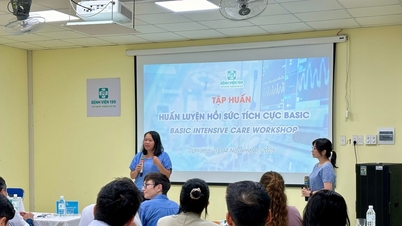






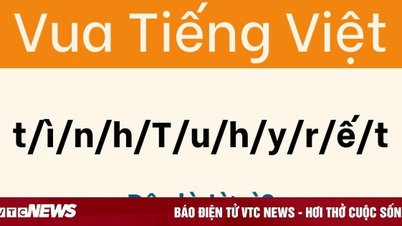



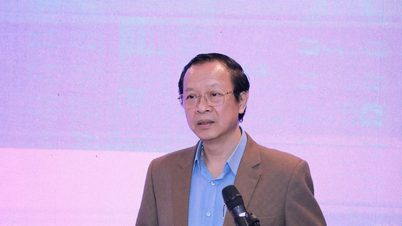
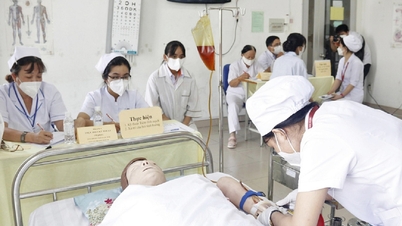

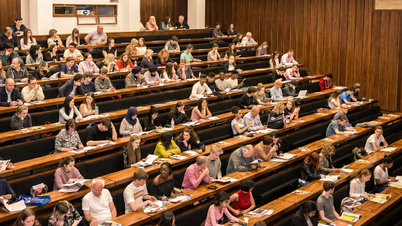




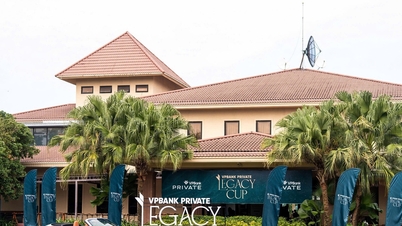



















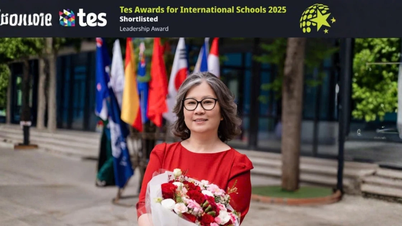



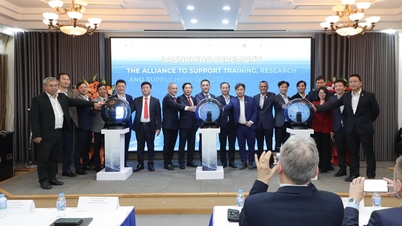






















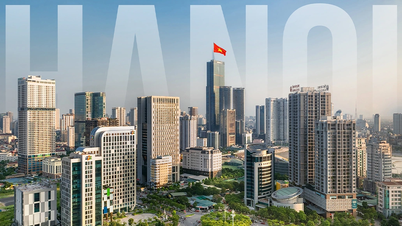




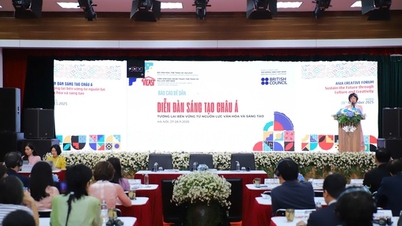
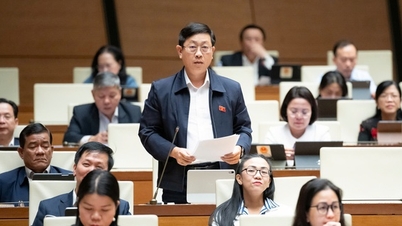
























Comment (0)